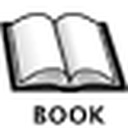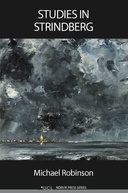Explore

In this volume Strindbergs accomplishments as a dramatist are set against his achievements in other fields, as an autobiographer, painter, letter writer and theatre director.There are studies of individual plays, in which Strindbergs theatre is related both to naturalism and the theatre of the absurd, and of the role played by his life-long interest in historical drama. Other essays range from studies of the problems posed by Strindbergs preoccupation with converting his own life into literature to a consideration of the importance he placed on letterwriting as a model for writing of all kinds. His letters are also used to explore his ideas about the theatre. A recurring concern is with the period of turmoil known as the Inferno Crisis, in which Strindberg refashioned himself as a writer. Robinson examines the importance of Strindbergs painting for his renewal as a writer and situates the achievement of his later works in relation to Symbolism and to Musical Expressionism.
This book is included in DOAB.
Why read this book? Have your say.
You must be logged in to comment.
Rights Information
Are you the author or publisher of this work? If so, you can claim it as yours by registering as an Unglue.it rights holder.Downloads
- 95 - epub (CC BY) at Unglue.it.
- 119 - pdf (CC BY) at Unglue.it.
- 191 - mobi (CC BY) at Unglue.it.
Keywords
- 20th century
- Drama
- Inferno
- Theatre
- Arnold Schoenberg
- Art-Practice
- August Strindberg
- Autobiography
- Drama
- Inferno
- Literature & literary studies
- post-colonialism
- Post-imperialism
- The arts
- Théâtre
- Theatre Studies
- thema EDItEUR::A The Arts::AT Performing arts::ATD Theatre studies
- thema EDItEUR::D Biography, Literature and Literary studies
- Visual cultures
- Visual Essays on Empire
Links
DOI: 10.5334/bacweb: http://www.ubiquitypress.com/site/books/10.5334/bac/
Editions



